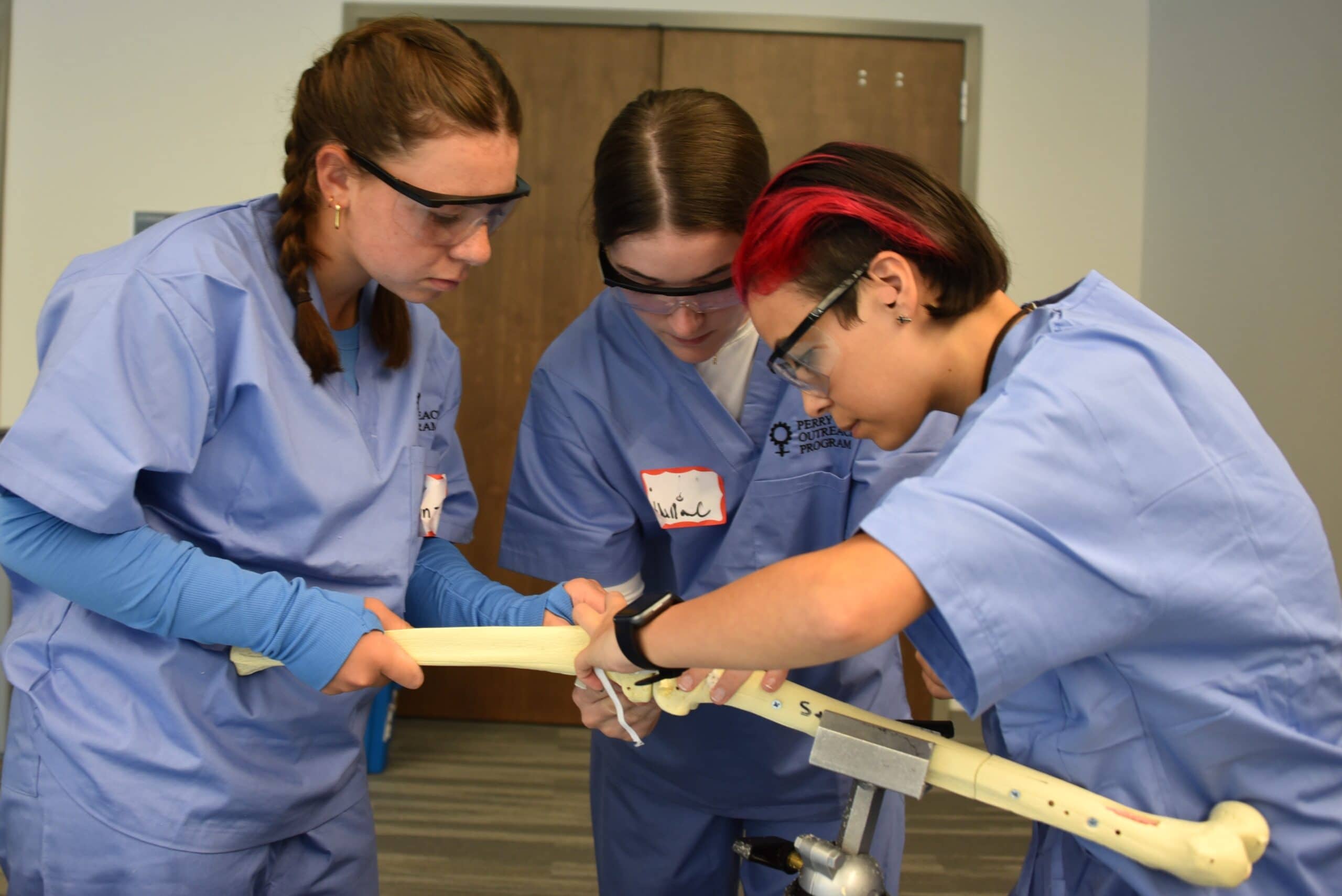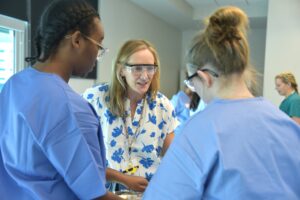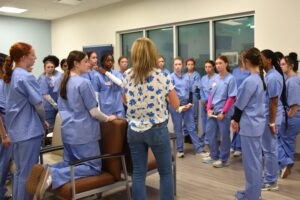View Larger Image

Perry Outreach Program participants work on a simulation using a sawbone.
Image by Andrew Vogler
Inspiring and Empowering the Next Generation of Women Orthopaedic Surgeons
| The University of Arkansas for Medical Sciences (UAMS) Department of Orthopaedic Surgery welcomed female students from the College of Medicine and Arkansas high schools for the Perry Outreach Program, an annual program to teach and inspire young women to become orthopaedic surgeons.
It is the 11th year that the Department of Orthopaedic Surgery has hosted the program.
The program is part of The Perry Initiative, a nonprofit committed to inspiring young women to be leaders in the fields of orthopaedic surgery and engineering, two fields in which women are drastically underrepresented.
Hosted in The Orthopaedic & Spine Hospital at UAMS, the workshop included a Friday evening session with 17 medical students and a day session with 40 high school students.
Theresa Wyrick, M.D., an orthopaedic hand surgeon and associate professor in the College of Medicine Department of Orthopaedic Surgery, led the hands-on workshop, with support from department staff and residents.
“Women are underrepresented in the field of orthopaedic surgery and engineering as only about 7% of practicing orthopaedic surgeons are women,” said Wyrick. “With this program, we hope to encourage young women to pursue a career in this medical field, while providing them with knowledge and experience that will give them the confidence to go further.”
In addition to hearing presentations from surgeons and support staff, students practiced hands-on simulations. In one session, students practiced suturing and knot tying on pig feet, and learned how to apply casts, practicing on their fellow participants. Later students used power tools on human bone replicas, called sawbones, drilling holes for pins and rods, driving nails and attaching external fixators to repair bone fractures on knees, ankles and femur bones.
“I think the best aspect of the program is that it is very hands-on, as we walk the students through simulations on how to suture wounds and fix bones, as well as showing the spaces where we conduct these procedures,” said Wyrick. “It’s very rewarding to see the students respond to the simulations, and I am confident that we are inspiring these ladies to consider health care and specifically orthopaedic surgery as a career possibility.”
Beyond the technical duties of an orthopaedic surgeon, students also learned about the work-life balance of the surgeon and the role of support staff.
“I was really happy to hear that the doctors are able to manage a family and be a surgeon because having a family one day is really important to me,” said Averi Sledge, a participant in the Perry Outreach Program. “When you think of surgeons, there is this idea that all they do is work, so I am excited to know that many of the professionals that spoke to us are married and raising children.”
Like many of the students in the program, Sledge was inspired by what they heard and empowered by what they did during the workshop.
“For a while now, I’ve had dreams of becoming a trauma orthopedic surgeon, and now that I’ve gone through the program, it has only fueled my desire to become a surgeon,” said Sledge. “In the program, I received a lot of experience, but I also got a lot of confidence, and I know that I can be woman dominant in a man-dominate field.”

